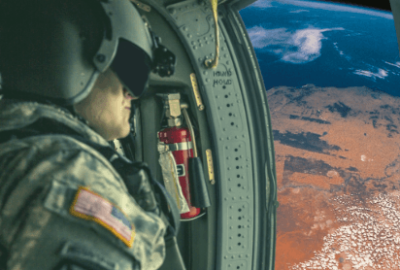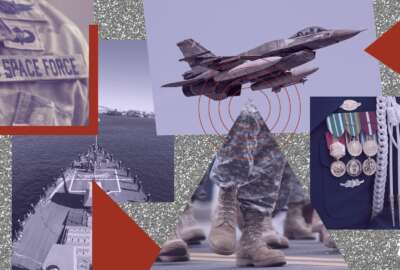DNI issues new guidance on polygraph testing during background checks
In case any current security clearance holders have not gotten the message that the current administration really, really dislikes media leaks, it was made more...
In case any current security clearance holders have not gotten the message that the current administration really, really dislikes media leaks, it was made more explicit this month in a new policy document from the Office of the Director of National Intelligence.
The new guidance on polygraph tests in the intelligence community — first pointed out by Steve Aftergood of the Federation of American Scientists — incorporates new references to the government’s move toward continuous evaluation, and pays special attention to the use of polygraphs for vetting clearance holders against counterintelligence concerns such as espionage, terrorism or unauthorized disclosures.
The document tells polygraph examiners to take special care to let their interviewees know that some disclosures are protected under law — like those to members of Congress.
But it also tells examiners that they should clearly communicate to their subjects that they’ll be grilled about any disclosures they might have made in the past to an “unauthorized recipient” — and in multiple places in the document, “any member of the media” is called out as the only specific example of such a person.
I can’t imagine that any intelligence professional is even slightly confused about whether anyone in my line of work is, legally speaking, an “authorized recipient of classified information”. Just like their next-door neighbors and spouses, we are not, unless we have active security clearances and a valid need-to-know.
Any IC employee who’s made such a disclosure in the past has done so with the courage of their convictions, knowing the risks they’re taking. Without judging whether any of those particular disclosures were right or wrong, this feels like yet another subtle signal to government employees that anyone who leaks anything to the media will get special attention.
But, digressing from my own thin-skinned parochial concerns, it’s difficult to discern from the document itself whether polygraphs themselves — already pretty controversial — will or won’t play a greater role in the intelligence community’s security clearance process.
The ODNI leaves the decision about whether to use polygraphs in the hands of individual IC agency heads, but also sets out policies that seem to suggest polygraphs are valuable. The guidance states an employee could be subject to “additional review” or a clearance denial if they decline to take the test or are uncooperative with questions. And if examiners glean information that suggests the interviewee has broken a state or federal law, they’re required to report it to the relevant authorities.
There are, however, exceptions. In keeping with the assurances on the widely- used SF-86 form all clearance seekers have to submit, they can’t be prosecuted for admitting they’ve used drugs in the past.
RELATED STORIES:
Pentagon’s new version of Better Buying Power focuses on ‘technical excellence’
Feds fast- tracking new system for keeping tabs on cleared personnel
Work: DoD needs funding boost, but fixing readiness will take years
Copyright © 2025 Federal News Network. All rights reserved. This website is not intended for users located within the European Economic Area.
Jared Serbu is deputy editor of Federal News Network and reports on the Defense Department’s contracting, legislative, workforce and IT issues.
Follow @jserbuWFED






